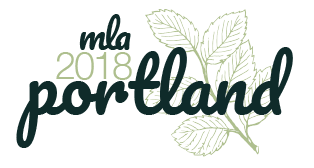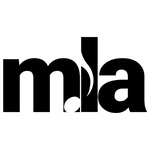2018 Meeting in Portland, Oregon

January 31-February 4, 2018
Hilton Portland Downtown
921 SW Sixth Avenue
Portland, Oregon, 97204
Conference Program
Knowledge Visualization in a Musicology Seminar Using the SCALAR 2 Platform (poster)
I taught a graduate music-history seminar that focused on several works, themes, trends, and genres related to British and American musical theater from the 1860s to the 1930s. A feature of the course was my construction of an online knowledge base comprising student-written and –reported summaries of scholarly literature produced by others as well as abstracts of their own course-related final research projects.
Four Years vs. One Semester: Music Information Literacy Delivered in Different Time Frames (poster)
This poster will demonstrate the two methods of delivering the Music Information Literacy course at Chapman University and discuss the benefits and pitfalls of each model.
Cascadia Harmonizing: Local and Regional Music in Special Collections of the Pacific Northwest
While many may associate the Pacific Northwest with rugged natural scenery, strong coffee, or hipster quirk, it has supported a variety of vibrant musical communities over the past 150 years. The history of this rich musical life can be traced through material preserved in special collections focusing on Pacific Northwestern music of many genres.
Cataloging, Preservation, and Discovery of Radio Content in Music Libraries and Archives
The session will address three major topics: 1) the challenges of effectively bringing out the “radio-ness” of musical recordings in library and archival cataloging, 2) preserving those recordings across multiple, endangered audio formats, and 3) facilitating researcher discoverability of/access to relevant recordings across diverse and geographically scattered archives.
The FUTURE Is NOW! Preparing for and Learning from Large-Scale Media Preservation
Sharing examples of the decisions made, projects undertaken, and lessons learned, this panel will provide details about the IU music library’s participation in the university-wide initiative and its development, give an overview of the MDPI lifecycle, demonstrate the tools being used to gather and present content and metadata, and discuss the potential impacts of digitization at scale on cataloging and collection management.
A Look At Early Film Music: From Max Steiner to Bernard Herrmann
Two presentations about current research in film music will complement D’Arc’s presentation. Jeff Lyon of Brigham Young University will present on his current research in creating a thematic catalog through a corpus study of themes composed by Max Steiner. Lyon’s research will look at the greater than 300 film scores composed by Steiner. Joshua Henry of Westminster Choir College will present on the dichotomy between film music and concert music of Aaron Copland and Bernard Herrmann.
Education Committee Town Hall
A panel consisting of the Education Committee chair and representatives from the in-person training, e-course, webinar, train-the-trainer, and MLA pre-conference working groups will lead the Town Hall. Each panelist will give a brief presentation describing the purpose and activities of their working group. This will be followed by an opportunity for attendees to ask questions and suggest topics and formats for future professional development opportunities.
Our MLA Archives: Focusing on Visibility and Access
Music libraries, archives, and special collections share many challenges. Often, the greatest challenge is COLLECTIONS VISIBILITY – reaching the very users we aim to serve. The MLA Archives is no exception. In this presentation coordinated by MLA Archivist Melissa Wertheimer, new and longstanding MLA members will learn that MLA’s archives exist, have unique records for personal and scholarly research, and are available in repositories across the country.
Changes in Latitude: Exploring Career Transitions from Public to University Libraries (and Vice Versa)
This proposed session will take the form of short presentations and/or a panel discussion and will delve into the topic of job transitions between academic and public libraries (or special libraries). We plan to explore the topic of job switches going in any direction, and the panel will discuss similarities in the jobs, differences in the jobs, challenges, myths, etc.
Data-Driven Music Score Approval Plans: Working with data, vendors, and other institutions to get what you need
Librarian experiences presented will include setting up an approval plan for the first time and adjusting an established approval plan with new criteria. Local data sources discussed include use data from circulation and interlibrary loan histories, institutional performance history from concert and recital programs, e-resource availability, and faculty input from surveys and interviews.

